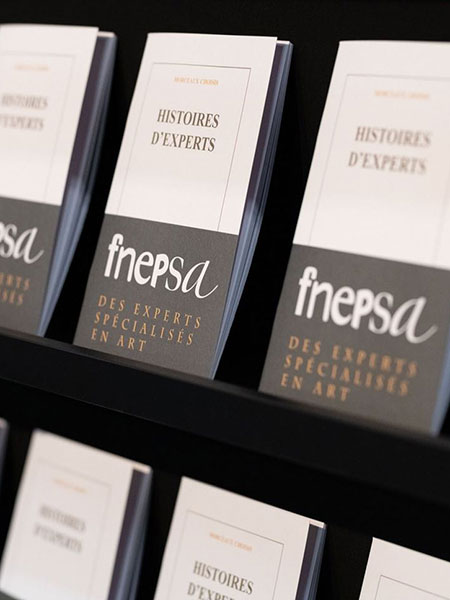
* Required fields
Contact & informations
14, avenue de l'Opéra
75001 Paris
France
75001 Paris
France
By continuing to use this website, you accept the installation of cookies to collect data for technical and statistical purposes.
See moreWhat is the difference between a self-proclaimed expert, an employee called "specialist" and an independent professional expert accredited by a national body?
In France and in Europe, the title of expert is not protected by a legislative framework.
Thus, any person can use this title and carry out an expertise in art, without having the necessary competences or respecting a code of ethics. He may not be independent, impartial or professional.
This is the reason why in France and in Belgium, the independent professional experts specialised in art have grouped together in organisations, federations, chambers or unions in the form of associations under the 1901 law.
The main purpose of these organisations is to select professional experts, in order to guarantee sellers, buyers or holders of works of art that they are dealing with a person whose honesty and reputation are recognised in their field.
Fnepsa belongs to CEDEA, the European Chamber of Art Experts.
Are you concerned that your works of art and collectors' items are not or are poorly insured against theft, damage, accidents, water damage and fire?
Would you like to be assisted before a partition, a donation or an inheritance?
Do you want to know the value of your assets?
The approved professional independent expert is there to assist you, to carry out the expertise and to estimate your works of art and collection objects.
To this end, he draws up certificates of authenticity. This document contains a photograph, a description and the dimensions of your work of art or collector's item. It also specifies the period, origin, condition and the existence of any restorations or alterations.
The expert indicates the replacement value of the item. It is indeed essential to know or have updated the replacement value of your works of art. This is not the price at which the objects were purchased, but the price you would pay today to acquire equivalent works of art. This is the amount that insurance companies will use as a basis in the event of a claim or theft.
Fnepsa's experts are authorised to draw up such certificates.
Before sharing or selling works of art, it is important to know the authenticity of your objects and their real value.
Before acquiring an object of art, you must ensure that it is sold with a certificate issued by a competent and certified expert.
Do you know what the role of the accredited independent professional art expert is?
He uses all the means at his disposal to help to establish the truth when it comes to your works of art and collectors' items.
Do you know what he does?
Thanks to his knowledge and experience in his speciality, his missions are oriented around the identification and the estimation of the work of art and the collection object. This is the expertise.
This art expertise allows him to determine a value, an estimate or a price of the works submitted to him. This is the estimation.
When the general knowledge of a ministerial officer is no longer sufficient for works of art and collectors' items, he or she calls on the services of an expert who helps to draw up inventories of furniture, paintings, sculptures, old books, works of art, collectors' items and jewellery.
He also intervenes in the case of divisions and successions.
He collaborates and writes catalogues of collections.
For insurance agents, he carries out all missions within the framework of estimates before or after a claim: theft, fire, water damage, various types of damage.
This complex profession requires a real ethic to be practiced according to the rules of the art.
Every surveyor must be recognised by his peers and must provide evidence of his real competence, his years of experience in his own speciality, his professional liability insurance and his independence.
The best school is that of daily practice. His studies, research and experience enable him to find in his memory the determining elements of the work that he compares with the piece under examination.
The expert's obligation is an obligation of means and not of result: he must provide all the usual means necessary for the examination.
The expert must use all his senses to examine what is submitted to him. Touch is necessary. He must be able to feel and listen to the object in his hands to make it "speak". His sharp, refined eye scrutinises the work. No detail can escape him.
The expert cannot rely on his first impression, the margin of error is too great. His certainty must be based on his knowledge and on a methodical analysis of the material.
Curious, he never stops learning and improving by continuing his research in archives, publications, libraries and museums in France and abroad.
He must be cautious in his judgement and keep a good dose of humility. "When in doubt, abstain" says the proverb. The expert will only certify the attribution of a work of art if he can gather all the evidence to guarantee it.
The expert is a person of art and not a scientist.
The expert must also maintain discretion and confidentiality with regard to the missions that are proposed to him.

* Required fields
